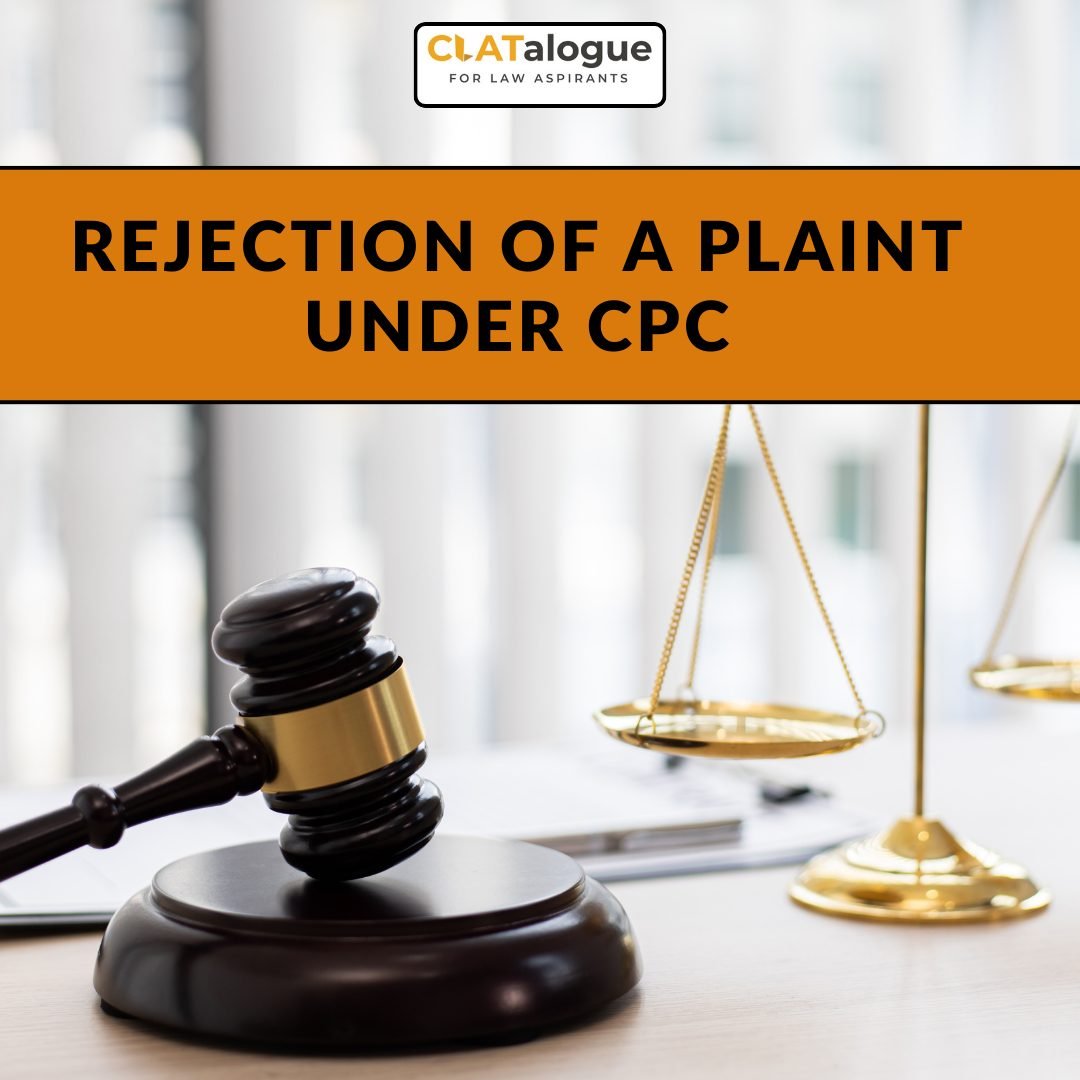Order 7 Rule 11 of the Civil Procedure Code (CPC) 1908 outlines specific grounds for rejecting a plaint.
The Civil Procedure Code (CPC) of 1908 is a comprehensive statute that governs the procedure to be followed in civil courts in India. It aims to consolidate and amend the laws relating to the procedure of civil courts, ensuring a fair trial and efficient administration of justice. One of the critical provisions under the CPC is the rejection of a plaint, which is governed by Order VII Rule 11. The rejection of a plaint is a crucial procedural aspect as it determines whether a suit is maintainable before the court. This blog delves into the grounds, judicial interpretations, and implications of suit rejection under the CPC 1908.
Grounds for Rejection:-
No Cause of Action: The plaint doesn’t disclose a valid cause of action, meaning the plaintiff’s allegations don’t justify the relief sought.
Undervaluation of Relief: The plaintiff undervalues the relief claimed, and fails to correct the valuation within the court-specified timeframe.
Insufficiently Stamped Plaint: The plaint is written on insufficiently stamped paper, and the plaintiff fails to rectify this issue.
Suit Barred by Law: The suit is barred by any law, including limitation, res judicata, or other statutory bars.
Non-Filing of Duplicate Plaint: The plaintiff fails to file a duplicate copy of the plaint.
Non-Compliance with Order 7 Rule 9: The plaintiff doesn’t comply with the requirements of Order 7 Rule 9, including attaching necessary documents.
Key Principles:-
Mandatory Provision: Order 7 Rule 11 is a mandatory provision, leaving no discretion for the court to allow the suit to proceed if grounds for rejection are met.
Limited Scope of Examination: When deciding on rejection, courts only consider the plaint’s averments and don’t examine external evidence or disputed questions of fact.
No Partial Rejection: The plaint must be rejected in its entirety or not at all; partial rejection isn’t permissible.
Consequences of Rejection:-
Decree: Rejection of a plaint is considered a decree under Section 2(2) of the CPC, making it appealable.
Fresh Suit: A rejected plaint doesn’t prevent the plaintiff from filing a fresh suit on the same cause of action, unless barred by limitation or other laws.
Case Law:-
A. Kazi v. Muskan Bai & Anr. (2011) 3 SCC 376
The Supreme Court in this case held that the court must not consider extraneous materials while deciding on the rejection of the plaint. The decision should be based solely on the averments made in the plaint.
The Civil Procedure Code (CPC) 1908 provides specific grounds for rejecting a plaint, ensuring suits are valid and compliant with legal requirements, with rejection consequences being appealable and potentially allowing for fresh suits.

